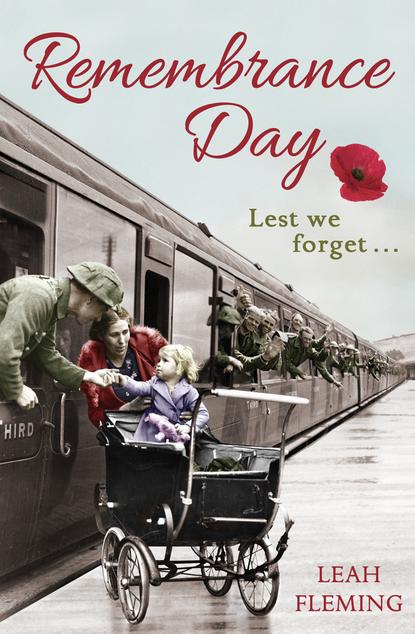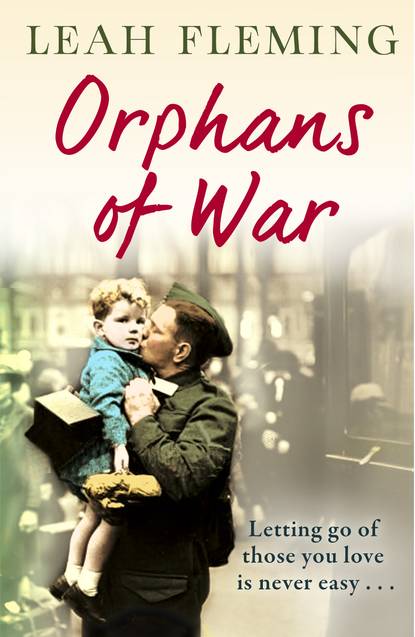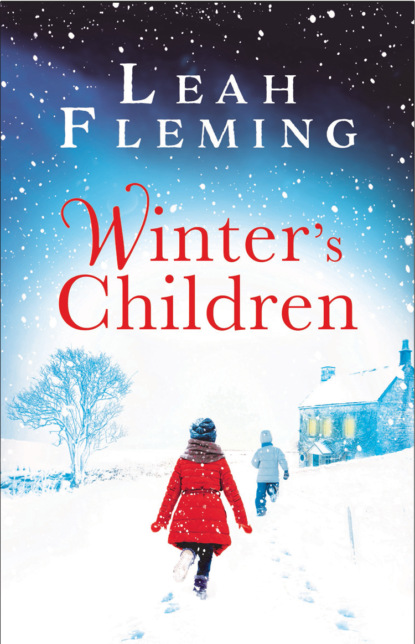
Полная версия
The Girl From World’s End
‘Get a grip o’ thyself,’ she sighed at such memories. There were geese to be plucked and sent down to market and the butcher. She hoped the prices held up for Christmas as it had been a tough year for farmers and workers, what with the General Strike and lay-offs.
She must parcel up a few bits for the Gilchrist lass down in Scarperton. She wasn’t sure whether Miriam was six or seven, but Mildred at the haberdashers always set aside a few items that hadn’t sold for her to parcel up. Time flew past so quickly. Where had the years gone?
There’d be many cutting corners this Christmas, making do with a cheap joint or scraps down in the market town. Joe would have to temper his chapel sermons; a little less hellfire and a little more goodwill to all men, she hoped. He could get so carried away when he got in that pulpit.
‘Remember those good women have scrimped and saved to put a Sunday meal on the table for their kin. Don’t you go spoiling their Yorkshire puddings with your rantings. Have a bit of Christian charity.’
‘You’re a hard woman, Adey! Come with me and give me a signal.’
‘Never,’ she would laugh. ‘I like my pew comfortable and quiet, with beautiful words and no bone shaking. The vicar gives us ten minutes’ pulpit talk. That’s enough for me.’
Joe would be out on the moors now, foddering the sheep, reciting the good bits of his sermon to himself, rendering choruses from Messiah and making sure none of his flock strayed too far, for the weather looked set for a blow-in of snow. He was a good shepherd to his flock through and through. He was for sheep and she was for cows so together they made a good team.
Cragside Farm sat on the slope of the fell, tucked into the hillside with windowpanes looking south and west to get the best of the sun to warm the stone a treat. Once it was thronged with children, dogs and yard boys, but now it was quieter as their son Tom farmed higher out at Scar Head, and his brother, Wesley, was a teacher in Leeds with no interest in farming at all.
This perch was fine while they were fit and strong, and Yewells were long livers, but come the next few years Joe would have to slow down a bit. Things were tough for farmers now and getting tougher, Adey thought as she sat with Carrie plucking the goose feathers into a sack. Nothing must be wasted.
‘There’s a letter come from Keighley,’ Carrie said, shoving the envelope across the table. ‘Who do we know in Keighley? Happen it’s a Christmas card from Paddy and the girl. What’s her name again?’ Carrie was fishing; always curious about the prodigal daughter and her infamous family who never darkened the door.
‘I’ve never had a card from him nor the girl, and she’s called Miriam, after Joe’s mam, as well you know. Little good that’ll do her. I’m surprised she didn’t get Theresa or Maria or some fancy saint’s name.’
Adey stared at the handwriting, curious for a second. The address was written in a neat copperplate hand. It looked official and it was addressed to both of them.
‘Aren’t you going to open it?’ Carrie was at it again, rooting for information, but Adey wasn’t going to give her satisfaction so shoved the letter in her pinny pocket and promptly forgot all about it. That was the trouble with girls who lived in: they got a little too nosy about family affairs. It was none of her business who was writing to them.
‘Now what’s all this about you and George Thursby?’ It was Adey’s turn to go fishing.
‘He’s asked me if I’m going to the Christmas hop in the village hall. What shall I wear?’
‘Clothes would be a start if you don’t want to stir them all up,’ Adey laughed. ‘I’m sure you’ll find something to dazzle him with, but I want you back at midnight and no hanky-panky. It’s a long walk up that hill in the dark. Let him wait for his favours.’
Carrie was blushing, her neck a circle of pink weals. ‘Mrs Yewell, what do you take me for?’ she muttered.
‘As silly a lass as any in the dale, as daft as a brush when it comes to a handsome face and clean shirt, but with a canny eye for a good bargain,’ she replied. ‘You could do worse than one of the Thursbys’ lads. They’re reliable, sturdy and don’t squander their brass. His mother is that careful she’d skin a dog for its fleas.’ Carrie laughed at her joke but her eyes were far away.
‘Mind, I was young once: only the once and look where I landed up: plucking geese, scouring pigs, mucking out and general farm dogsbody stuck on the moors in all weathers. At least George won’t make you tramp with him. It’s a good job in the Post Office, steady and secure in hard times. You could do worse. Take our Tom. When’s he ever going to get himsen wed? He’s over forty and too set in his ways.’
Adey had been hoping her son might have taken a shine to this girl himself but he was tongue-tied when he came into female company, preferring to go his own gait and a game of darts in The Fleece, much to Joe’s dismay. If he didn’t get a move on there’d be no grandsons to take over the tenancy and run the family farm.
He was a good catch. The Yewells were a family of standing in the district. Joe was a lay preacher in the Methodist Circuit. She was a Boothroyd from a farm across the Ribble valley: two of a kind. It didn’t do to marry off the moor, like Ellie. You never knew what you were getting or what sort of stock they came from, its strengths and weak points. Better to be in full knowing of the facts before signing up for life, she thought.
All in all she’d had no regrets. It was a pity you couldn’t choose yer own bairns. They all needed kicking with a different foot: Wesley was all brains with no feel for the land; Tom was all brawn and no business sense; Ellie, well, she was bonny and bright but as stubborn as they came, wanting to go her own road into a town. Bradford was no life for a country-born girl, especially in the war, with rations and shortages and two babies to rear and a husband away fighting.
If she’d come home for a bit of fresh air they wouldn’t have turned her away from their door, but she didn’t because a Yewell was too proud to admit a mistake and they were too proud to go running after her. What a carry-on for good Christian folk!
As the morning wore on Adey was too busy to dwell on what-might-have-been. There was the farm lads’ dinner to line up in the large stone-flagged kitchen, the chicken coop to see to and the ironing of shirts. She wanted to get the oven range hot for a bit of special baking: spice bread and ginger cake to put away for when company came calling. Joe would be wanting his tea before his last rounds, and tomorrow was the slaughterman’s day when Myrtle would give her all. They would be at the butchering until midnight.
It was after eight before she sat down to the basket of mending by the half-finished peg rug. No rest for the wicked, she smiled, and then remembered the letter in her pocket.
‘There’s summat come from Keighley Shall I open it or you?’ she asked, seeing Joe was half asleep in his big leather chair. He grunted as she opened the page, then opened his eyes when there was silence from across the table.
‘What’s to do? Give it here…’
She shoved the letter across the table. ‘You’d better read this,’ she muttered.
He fumbled for his spectacles and gave it the once-over, paused and then searched the flickering flames as if looking for a reply. ‘By heck, that’s a turn-up. I shall have to get on my knees to the Lord about this. Poor lass…and just before Christmas, but it’s too much for us to take on at our age.’ His eyes were pleading with her to agree.
Adey read the letter then she too searched the flames, trying to blot out the image of Ellie’s likeness that lay face down in her dressing table drawer. This was their own flesh and blood they were assigning to an orphanage, their only grandchild, named after their own famous kin, Miriam of the Dale, who had rescued children in a blizzard at great cost to herself.
If only it weren’t Christmas, with stories of wandering strangers and no room at the inn. How could you turn your back on a bairn at such a season and look your neighbours in the eye?
Joe stood up and stomped around the room. ‘The daft happorth! Crossing the line in the dark, getting torn to pieces by an express. It don’t bear thinking about. I’ve seen what engines can do to a dog trapped on a rail. Railway sidings are no place for a kiddy.’
‘It was good enough for two of ours, Joseph Yewell.’
‘And look where it landed them. Ellie and Wesley are backsliders and town dwellers,’ he argued, not looking his wife in the face; not wanting to see her anguish.
‘We were hard on Ellie. Miriam’s not to blame for her parents, now is she? Do we turn our backs on her? What good reason is there for that? Answer me?’
‘We don’t know anything about her,’ Joe snapped.
‘Would you turn out one of yer own stock for running with a tup in the wrong field?’
‘That’s just an animal.’
‘We’re animals too when it comes to looking after our own. Whether we like it or not, she’s one of us: a Yewell with yer own mother’s name. What sort of life will she have if we say no to their request? Can you live with that ’cos I can’t, not now, knowing what we do…’ Adey flushed with heat and began to snivel.
‘I shall have to pray over it. It may not be the Lord’s will.’
‘I don’t know where you dreamed that one up, preacher man. Doesn’t the Good Book say, “Suffer the little children to come unto me and forbid them not”? If it’s good enough for the Master then happen it’ll be good enough for us too.’
‘Adeline, you’ve no idea what you’re taking on…she’s someone else’s child.’
‘Our daughter’s child, mind; a motherless lamb. How many of them have we mothered on in our time?’
‘Let’s sleep on it and see how it feels in the morning. I’m off to check the byres,’ Joe said, anxious to be out of the room, far away from this unexpected request.
Neither of them slept much that night, tossing and turning, pulling the bedclothes this way and that. In the morning the slaughterman would be about his killing business. There’d be no time for private discussions until late.
Adey rose and lit a candle, opening her private drawer, the one that held stuff that was women’s business: douches, sponges, pads and belts. Soon she would be at the end of all that palaver, but to start again with a kiddy and a stranger to a farmhouse? Whose fault was that? It was too much to ask of them.
But as she lifted Ellie’s portrait, those Yewell eyes pierced her through like a spear straight into her heart. ‘Don’t abandon my child,’ they cried out.
She closed the drawer and dressed ready to face this bloody day.
2
Miriam sat in the railway carriage, stunned with the suddenness of being torn away from everything and everyone she knew. Dad was barely laid in the hard ground and already his face was fading from behind her eyes. Now she was going to live with strangers in a foreign land like Ruth in the bible story. The lawyer said she was a lucky girl to get this change of sky but his words weren’t sinking in.
Her new relation was sitting across from her, bolt upright, staring out of the window, but every so often Mirren caught her snatching glances at her face as if she had snot on her nose end.
Grandma Yewell had appeared in the lawyer’s office when Granny Simms packed a little parcel of clothes and took her down to Keighley on the tram.
‘Now you be good for yer new gran. She’s come a long way to fetch you. Remember your Ps and Qs and don’t fidget,’ she whispered as they sat in the corridor waiting for the door to open to the old man’s office.
‘Now, Miriam,’ he said, when they were admitted, pointing to the lady in the seat. ‘I want to introduce you to Mrs Yewell, mother of the late Ellen Miriam Gilchrist, who’s your grandmamma now. She’s kindly agreed to take you back to the family’s farm for a little holiday in Windebank.’
Mirren bobbed a curtsy like they did to the managers of the school when they came visiting. Her tongue stuck to her teeth.
‘She’s tall for a seven-year-old,’ muttered the woman before her, in a thick tweed coat, brown felt hat and with a dead fox round her neck. She eyed Mirren up carefully.
‘I’m eight and a half,’ Mirren piped back.
‘And sharp with it!’ said the woman.
‘You’re a very lucky girl that your grandparents are offering to take full responsibility for your welfare. Needless to say I hope you will repay them with good behaviour, diligent service.’
‘But I don’t know them,’ Mirren cried suddenly, realising that she must leave with this lady, and clinging to Granny Simms.
‘Now none of that, young lady,’ the old man with the whiskers down the sides of his face continued. ‘You have a whole train journey to get acquainted…It’s as much a burden for them to have to take you in as it is for you to make minor adjustments to your change of circumstances. You were not left in any position to support yourself, my dear. If these kind folk hadn’t offered—’
The lady cut his words off, saying, ‘Come along, lass. We’ve a train to catch or your grandfather will be left standing at the station. It doesn’t do to keep a farmer waiting.’ She smiled with her eyes and Mirren picked up her parcel, knowing there was no other way. She hugged Granny Simms, who wiped tears from her eyes.
‘You’ve got a good ’un there and wick as a weasel, just like her mam, a real lady…’ Granny Simms told Mrs Yewell. Then she was gone.
Why had her gran and granddad never visited her before? There was a big bust-up, Mirren knew, a falling-out over her dad, long before she was born. She knew nothing about farms except that they were smelly places full of cow muck and horse dung. They once went on a Sunday school trip to one up on Howarth Moor, which was a right wild place where some lady had written a story called Withering Hats.
She smiled now, looking at Mrs Yewell’s hat. It was withering at the edges, all floppy with feathers that looked faded and frayed. It must be windy at Windebank. How would she live up in the wilds? She stared out of the window, trying not to snivel as her eyes filled with tears.
There was nothing but green fields and stone walls flashing past the window, walls running in all directions, making strange patterns over the hills: squares, oblongs, triangles and curves, and in the middle were dotted sheep like balls of cotton wool.
‘Are we nearly there?’ she asked. ‘When do we see the farm?’
‘All in good time,’ whispered the woman. ‘Be patient. Everything comes to them as waits…’
Mirren sighed and turned back to the window. She had never seen so many walls and sheep, men on carts and not a mill chimney in sight. This was a funny place to live, all strung out on your own. Where were the streets and the crowds?
Adey couldn’t take her eyes off the child opposite. She was the spitten of her mother at that age: the same long sandy plaits and those blue Yewell eyes. If she’d walked past her in the street, it would’ve been like seeing a ghost. How could she have gotten her age so wrong? Miriam must have been born at the war’s end. The son died as a baby. They ought to have visited but farms couldn’t run on their own and bridges had been burned when Ellie ran away.
The truth was she couldn’t bear to see her daughter living in the rough, running after a navvy into goodness knows what conditions. No wonder she…but this lass would get her chances even if she did have Paddy’s wild blood inside her. There was a spark to her eyes and an edge to her tongue, and she was quick to defend herself like all the Yewells.
So they called her Mirren not Miriam, the Scotch way, the old Granny had whispered. The lass had a right to her name but the Yewells were proud of Miriam and doled it out to their firstborn daughters for generations. Ellie had done the same for her daughter and that was touching.
Adey had to admit she was warming to the bairn even if she could see a few battles ahead with stubbornness. Mirren was a town child and not easy to settle up the dale, not used to shutting gates and doing chores. They were used to shops and dens of iniquity round every corner, cinema houses showing bare flesh as if it were decent. The child’d need watching and fattening up; all legs and elbows and bony knees. The kiddy was sitting in a dark serge coat two sizes too small, with her skirt hem showing and her stockings in need of a good darn: more holey than godly. Heaven only knew what was underneath. Full of fleas no doubt, but a good scrub would sort that out.
‘Do you like the country?’ she asked, trying to interest the girl away from picking her nose.
‘If you’ve seen one sheep you’ve seen the lot,’ Mirren sighed.
‘Oh, but that’s where you’re wrong. Every one of them is different and some of them have names, just like children, no two alike. The shepherd like the Good Lord Himself, knows them all. There’ll be a lot for you to learn, but farming’s in your blood so you’ll soon catch on. Your grandfather will walk you round the fields and introduce you to his flock so they’ll come to you,’ she added, hoping he would take to the child as she had done.
Joe would be shocked when he saw this mite standing, the image of their lost daughter. Why had they kept away so long? This child had been allowed to run wild into all sorts of danger just because they were too proud to bend a little. Now they must make up for lost time.
The man who came in the cart to collect them was like a giant with a sandy moustache and tufts of sandy hair coming out of his nose. He stared at her.
‘So this is our Ellie’s bairn, skinny as a lath but bonny with it? We’ll do summat with this one, Mother,’ he laughed, eyeing Mirren up like a prize calf.
‘No guessing she’s one of ours, Joe, is there?’ said his wife.
‘Oh, aye, right enough, but not in front of the lassie…So what did you think, coming all this way on a steam train?’ he offered, thinking she’d never been on a train before.
‘I’ve been everywhere with my dad…Leeds, Bradford and to the sea once at Filey,’ she answered politely. ‘This one was a bit slow.’
‘I see we’ve got a right little wanderlust here but I bet you’ve never lived on top of the world before,’ he said with a wink. She stared back, not sure if he was teasing or not. He was so tall and broad, like a giant in fustian breeches and big leather boots. His jacket had patches at the elbows, and from his waistcoat hung a real gold chain.
‘Now don’t go upsetting the lass. It’ll all be strange to her at first,’ said the woman.
‘All aboard then, and let’s be getting back, young lady.’
They seemed to be climbing uphill for ever, past grey stone village houses, past a small church with a stubby tower, past a duck pond, up walled tracks, higher and higher to the top of the hill where jagged white rocks jutted out and sheep scuttled past on bare grey hillsides. Down in the valley Mirren could see more stone walls and fields of sheep grazing, greens and greys and blue sky. A damp wind mopped her cheeks and she felt dizzy at the sight of such strangeness. It was another world with no people, no buses, no lines of houses lining the road, no smoking chimneys.
Then they turned off the track to the left towards a large white house with windows shining, sparkling like eyes. It was a house grander than she had ever seen before and this was Cragside, her new home. This was where Mam had lived as a girl. How could she have ever left such a dwelling for a railway hut?
Perhaps it was the marble pillars in the hall, the clack of her clogs on the tiled floor, or the high ceilings with piped icing corners, the large square rooms off the hall or the fact that the back of the house seemed to be tunnelled into the rock, but Mirren thought that Cragside wore a frown, not a smile, on that first viewing. It was like walking into the town hall or the Wesleyan Chapel and asking for the lavvy. She was dying for a pee but too shy to ask.
A kind girl in a white apron, called Carrie, showed her into the parlour, which smelled of lavender polish and woodsmoke, and she crossed over to the long window, staring out at the view. You could see for miles and miles, right down to the river and the railway line.
‘The sheep have all got coloured bottoms,’ was all she could think of to say. ‘Why?’
Nobody answered, but Carrie smiled. What had she said wrong?
This might look like a palace but at that moment her grandmother looked stern and forbidding, and Granddad looked awkward.
‘Go with Carrie into the kitchen and she’ll find you some tea,’ her grandmother ordered as she flopped down on the big armchair, pulling off her withering hat with relief. ‘It’s been a long day.’
‘I need the lav,’ she whispered to the maid.
‘The what?’
‘The lavvy. I’m bursting…’
‘Oh, the nessy…outside in the yard, or you can go to the water closet upstairs but it’ll be a bit high for you to pull the chain,’ said Carrie.
Mirren didn’t wait for an answer and shot out into the cobbled yard to look for the toilet.
From what she had seen so far, this was one of those fussy houses with ornaments to knock over and photographs to admire. There was a shawl over the big piano that might come hurtling down if she caught it and then she’d smash all the glass. She must remember to walk slowly and not make a noise on the flag floors. The kitchen smelled like a bakery and she felt hungry for the first time in days.
If only this was just a holiday it would be wonderful. If only Mam and Dad and Grant were here visiting together, playing in the fields and then going back home on the train, back to Scarperton and her friends…But this was for ever and ever, amen, and they were her family now, strangers who called her by the wrong name, who lived in a cold house and spoke different.
Mirren sat on the lavvy seat and howled. She was Jill all alone and it was all Dad’s fault, but she couldn’t be cross with him because he was gone. They were all together now without her in heaven. It wasn’t fair!
3
In the days that followed Mirren’s arrival at Cragside Farm there were a whole new set of chores to be learned. Carrie took her in hand to feed the chickens, to rummage for precious eggs and clean out the huts carefully, and look for holes in the fence where Brer Fox could get in. Mirren wrinkled up her nose at the smell of chicken dung but knew the score.
Uncle Tom, her mother’s big brother, showed her how to sweep up properly and take water to the cattle in the winter barn. The yard boy helped her scoop oats for the big Clydesdale horses. There was so much to learn and being busy made her forget about starting the new school down at Windebank.
Sometimes in the evening they gathered round the piano and Granddad placed his fingers up and down the keys to find a chord and smiled, showing her a set of gleaming teeth that Carrie said Granny had given him as an early Christmas present. He played tunes without even looking at his fingers. ‘“Just a song at twilight, when the lights are low…”’ His voice was rich and deep, but Granny got upset.
‘Don’t sing that, Joe…George used to sing that in the chapel concert. He was your mother’s brother, Mirren, but he never came home from France. They never found him; so many lost boys. At least you’re a lass and won’t have to face that carry-on.’ She sniffed, pointing to the photo of a soldier in uniform in the black frame on the mantelpiece. ‘That’s yer uncle, God rest his soul. Thank goodness some were spared, but there’s one or two round here who’re not the men they once were; the schoolmaster for one. I’ve heard that Annie Burrows has a lot to put up with these days.’ She lifted her hand as if she was swallowing something from a bottle. Then she saw Mirren watching and put it down quickly. ‘I’m glad to see you’ve signed the temperance pledge. Joe’s a Methodist so we don’t drink.’
‘Was my mam a good singer?’ Mirren asked.
‘She could render a good Messiah chorus when pushed but no solo work. George was our baritone. He’s sorely missed. They don’t do concert parties down Windebank any more. There aren’t enough men to go around now,’ she sighed.







